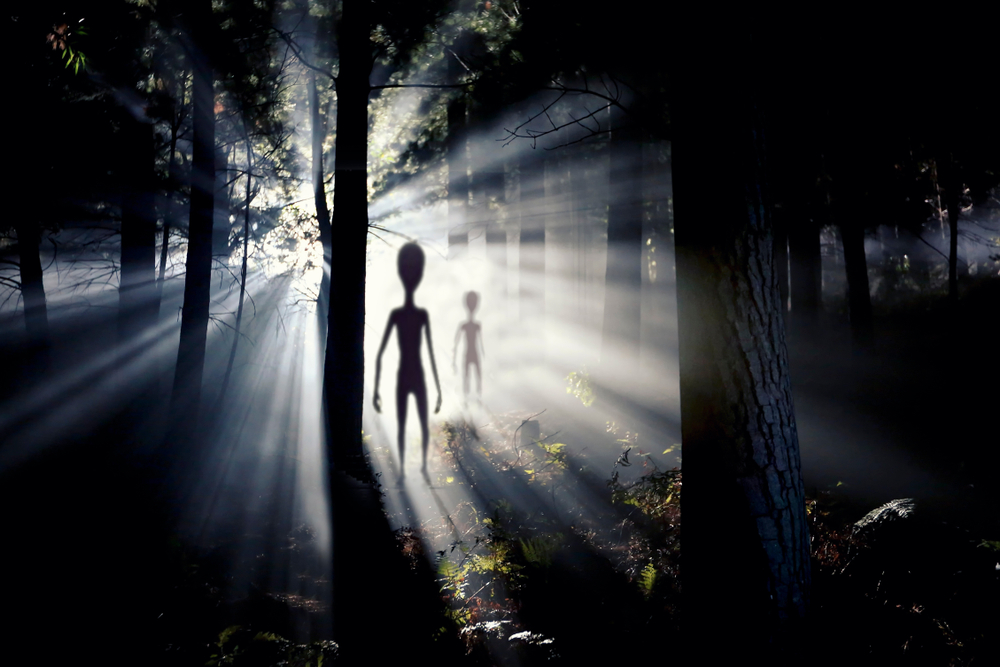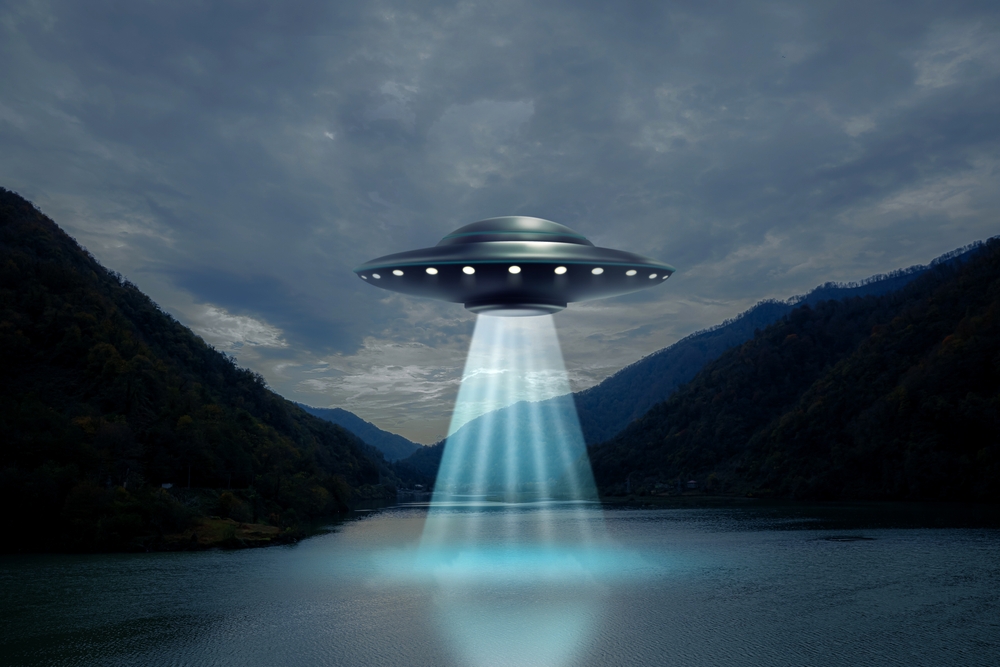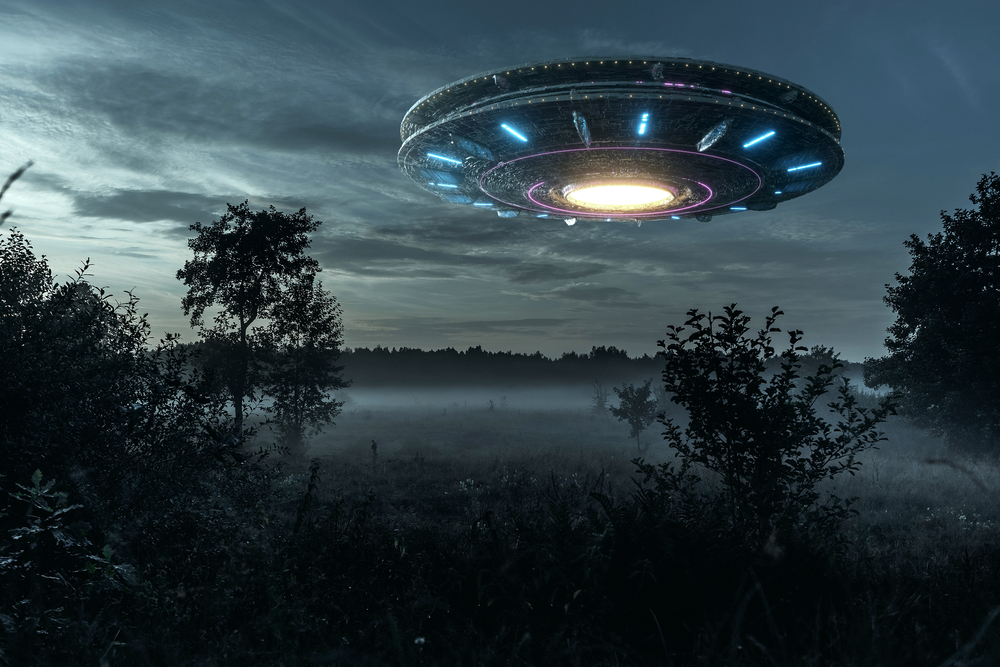Emma Stone Explains Why Not Believing in Aliens Is ‘Narcissistic’ as She Declares Belief in ExtraTerrestrial Beings

Picture an Oscar-winning actress sitting at a press conference for her latest film. Cameras roll. Journalists lean forward with routine questions about movie plots and character development. Then someone asks about extraterrestrial intelligence, expecting a playful deflection or clever joke.
Instead, she drops a confession that sends shockwaves through the entertainment world.
Emma Stone didn’t just entertain the alien question at Venice Film Festival. She embraced it completely, citing scientific philosophy and cosmic humility in ways that made headlines worldwide. Her declaration went far beyond typical celebrity quirks, tapping into deeper questions about human nature, universal perspective, and what it means to believe in something bigger than ourselves.
Oscar Winner Drops Alien Bombshell at Venice Film Festival
“How do you know I’m not an alien?” Emma Stone. pic.twitter.com/HxJmYDPBnR
— best of emma stone (@badpostestone) August 28, 2025
Venice Film Festival press conferences usually follow predictable patterns. Stars discuss their latest projects, share behind-the-scenes stories, and field questions about working with acclaimed directors. Stone’s “Bugonia” press conference started exactly this way until someone asked about “ultimate intelligence looking down on us.”
Most actors would deflect such questions with humor or polite non-answers. Stone took a different approach entirely. She made what she called a “coming out” statement about extraterrestrial belief, catching both journalists and festival audiences off guard.
Her response wasn’t casual or flippant. Stone grounded her alien belief in scientific reasoning and philosophical reflection, referencing renowned astronomer Carl Sagan’s work on cosmic perspective and human arrogance. Festival attendees witnessed something rare: a major Hollywood star making a serious case for extraterrestrial life based on scientific probability rather than pop culture fantasy.
Press conference dynamics shifted immediately. Follow-up questions probed deeper into her beliefs, her reasoning, and even whether she might be an alien herself. Stone handled each inquiry with characteristic wit while maintaining her position that alien life represents statistical likelihood rather than narcissistic human fantasy.
Carl Sagan Quote That Changed Stone’s Mind About Aliens
Stone built her alien belief on solid scientific foundation rather than science fiction entertainment. Her philosophical inspiration came from Carl Sagan, the astronomer who brought cosmic perspective to mainstream audiences through books like “Cosmos” and “Pale Blue Dot.”
Sagan argued that believing humans represent the only intelligent life in an infinite universe reflects dangerous narcissism. He viewed cosmic loneliness as both statistically improbable and philosophically arrogant, suggesting that Earth-bound intelligence couldn’t possibly be unique across billions of galaxies.
Stone absorbed Sagan’s teachings about human insignificance in cosmic terms. She describes falling “madly in love with his philosophy and science” and considers him among her favorite historical figures. His influence shaped her worldview beyond astronomy, affecting how she thinks about humanity’s place in existence.
Sagan’s famous quote about Earth being a “pale blue dot” suspended in cosmic vastness resonates throughout Stone’s alien beliefs. She echoes his argument that vast universal expanses make human uniqueness both unlikely and egotistical to assume.
What Stone Actually Said Word-for-Word

Stone’s exact words at Venice Film Festival reveal careful thought behind her alien declaration: “I don’t know about looking down on us, but one of my favorite people who has ever lived is Carl Sagan and I fell madly in love with his philosophy and science and how brilliant he is. He very deeply believed [that] the idea that we’re alone in this vast expansive universe — not that we’re being watched — is a pretty narcissistic thing. So, yes, I’m coming out and saying it: I believe in aliens.”
Her statement draws clear distinctions between different alien concepts. Stone separates alien existence from alien surveillance, focusing on probability rather than paranoia. She doesn’t claim extraterrestrials watch human activity or interfere with Earth events. Instead, she argues that statistical likelihood makes alien life inevitable somewhere in space.
When journalists pressed further about her potential alien status, Stone responded with characteristic humor: “How do you know I’m not an alien?” Her playful deflection acknowledged the absurdity while maintaining her serious position on extraterrestrial probability.
Stone also addressed celebrity identity challenges in cosmic terms, describing the disconnect between public personas and private selves as almost alien-like experiences.
Why She Chose This Movie to Make Her Statement
“Bugonia” provided the perfect context for Stone’s alien confession. Her character plays a CEO kidnapped by conspiracy theorists who believe she’s an extraterrestrial sent to destroy Earth. Film themes naturally led to questions about cosmic intelligence and human paranoia.
Director Yorgos Lanthimos crafted “Bugonia” as commentary on current conspiracy culture, technology fears, and social denial. Stone’s character embodies the intersection between corporate power and alien paranoia, making her real-life alien beliefs particularly relevant to press discussions.
Stone and Lanthimos explored how humans project their fears onto imagined extraterrestrial threats while ignoring real environmental and social dangers. Her Venice confession added meta-textual layers to film promotion, blurring lines between fictional alien conspiracies and actual scientific probability.
Film marketing benefits when stars make unexpected personal revelations connected to their projects. Stone’s alien belief generated far more media coverage than typical movie promotion, demonstrating how personal confessions amplify professional work.
Celebrity Culture and the Alien Question
Stone joins a growing list of entertainment figures who publicly discuss extraterrestrial beliefs. Her confession fits within broader Hollywood fascination with cosmic questions and alternative perspectives on human existence.
Musicians often lead celebrity alien discussions. Katy Perry wrote “E.T.” celebrating romantic encounters with extraterrestrial beings, mixing pop music with cosmic fantasy. Her song reached massive audiences, normalizing alien themes in mainstream entertainment.
Keanu Reeves has expressed openness to alien possibilities during interviews, though he maintains scientific skepticism about UFO claims. His approach mirrors Stone’s distinction between believing in extraterrestrial probability and accepting specific alien encounter stories.
Tom DeLonge left Blink-182 to pursue UFO research full-time, founding To The Stars Academy to investigate unidentified aerial phenomena. His commitment goes far beyond casual belief, representing serious dedication to alien investigation.
Demi Lovato has shared multiple UFO encounter experiences and promotes extraterrestrial awareness through social media. Her advocacy extends into activism, encouraging government transparency about alien evidence.
These celebrity examples show diverse approaches to alien belief, from Stone’s scientific reasoning to DeLonge’s investigative commitment to Perry’s artistic expression.
Science vs Entertainment: Where Stone’s Beliefs Fit

Stone’s Sagan-influenced position aligns with mainstream scientific thinking about extraterrestrial life probability. Astronomers widely accept that alien life likely exists somewhere in the universe, given billions of potentially habitable planets discovered through telescope observations.
Drake Equation calculations estimate alien civilization probability based on star formation rates, planet availability, and life development chances. Most scientists agree that mathematical probability strongly favors alien life existing somewhere, though they remain skeptical about Earth visitation claims.
Stone’s belief reflects scientific consensus rather than fringe thinking. She avoids UFO encounter stories or alien abduction claims, focusing instead on statistical likelihood arguments that professional astronomers regularly discuss.
Her position differs significantly from conspiracy theories or paranormal claims. Stone grounds her beliefs in evidence-based reasoning rather than unexplained phenomena or government cover-up theories.
Scientific institutions like SETI (Search for Extraterrestrial Intelligence) spend significant resources looking for alien signals, validating Stone’s belief that extraterrestrial intelligence represents serious scientific possibility rather than fantasy entertainment.
Film Industry’s Growing Interest in Alien Stories

Hollywood increasingly explores alien themes across multiple genres, from serious science fiction to comedy parodies. “Bugonia” represents current industry interest in blending extraterrestrial concepts with social commentary.
Recent films like “Arrival” and “Blade Runner 2049” treat alien encounters as philosophical questions rather than action spectacles. Directors use extraterrestrial themes to examine human nature, communication challenges, and existential meaning.
Comedy approaches alien subjects differently, using extraterrestrial elements to satirize human behavior and social institutions. “Bugonia” follows this tradition, examining conspiracy culture and corporate power through alien paranoia lenses.
Television shows increasingly feature alien themes, from “Ancient Aliens” documentary series to “Resident Alien” comedy drama. Streaming platforms invest heavily in extraterrestrial content, recognizing audience appetite for cosmic stories.
Real-world UFO disclosure policies fuel entertainment industry interest. Government agencies releasing previously classified aerial phenomena videos create cultural contexts that make alien-themed entertainment more relevant and timely.
What Stone’s Statement Means for Her Career

Stone’s alien confession reflects her pattern of taking creative risks and choosing unconventional projects. Her collaboration with Lanthimos demonstrates comfort with strange material and willingness to explore unusual characters.
Personal beliefs often influence actor role selections. Stone’s cosmic perspective might attract her to science fiction projects or films exploring philosophical questions about human existence and universal meaning.
Her Venice confession shows authentic personality rather than calculated publicity strategy. Stone’s genuine enthusiasm for Sagan’s work and scientific thinking suggests her alien beliefs represent sincere worldview rather than career maneuvering.
Celebrity authenticity increasingly resonates with audiences who appreciate honest personal expression over manufactured public personas. Stone’s willingness to discuss controversial topics might strengthen her connection with fans who value intellectual honesty.
Future projects might explore themes related to her cosmic perspective. Directors and writers aware of her alien beliefs could develop characters and stories that tap into her genuine interests and philosophical inclinations.
Stone’s Message About Human Perspective
Stone’s “narcissistic” comment about human uniqueness carries implications far beyond entertainment industry discussions. Her message challenges anthropocentric worldviews that place humanity at the center of cosmic importance.
Carl Sagan’s influence on Stone reflects broader scientific education goals about promoting cosmic humility and rational thinking. She uses her celebrity platform to advance scientific literacy and encourage people to consider their place in universal context.
Environmental and social problems might benefit from cosmic perspective approaches that reduce human ego and increase awareness of planetary interconnectedness. Stone’s alien beliefs connect to broader philosophical questions about responsibility and cooperation.
Her Venice confession demonstrates how celebrities can promote scientific thinking while maintaining entertainment value. Stone shows that serious intellectual discussion and popular culture success aren’t mutually exclusive goals.
Educational impact occurs when respected public figures discuss scientific concepts accessibly. Stone’s alien beliefs might encourage fans to explore astronomy, philosophy, and critical thinking about humanity’s place in existence.
Stone’s cosmic humility message resonates during times of global challenges that require international cooperation and reduced nationalistic thinking. Alien probability arguments naturally lead to discussions about planetary unity and shared human experience across cultural boundaries.
Loading...

